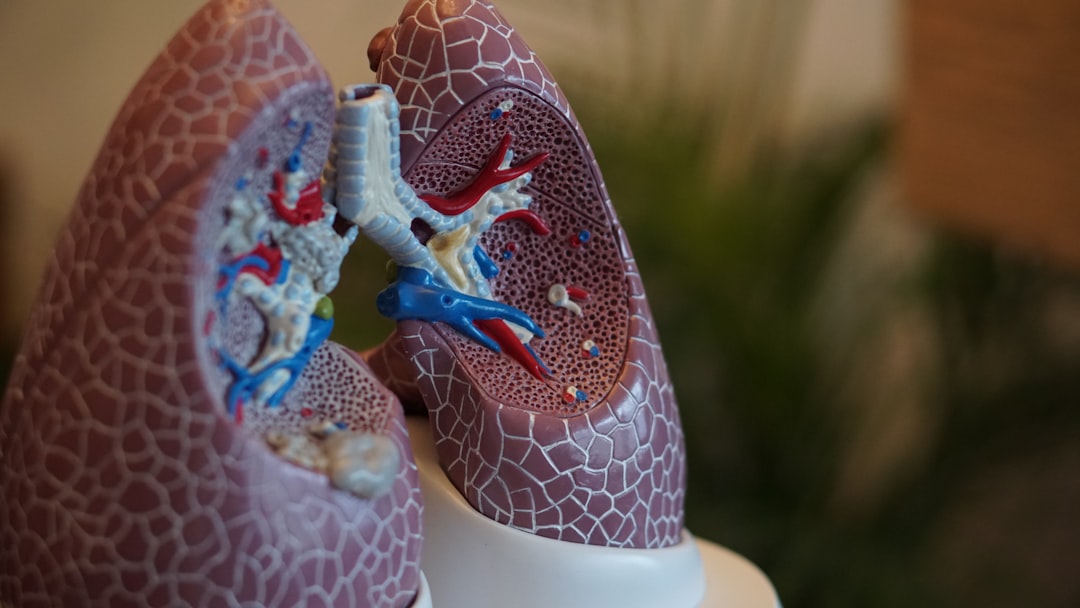Unlocking the Mind-Body Connection: How Your Feelings Can Impact Your Physical Wellbeing

Photo by Robina Weermeijer on Unsplash
There’s a lot more to the mind-body connection than the medical community wanted to admit a couple of short decades back.
Emotions, when repressed or not processed properly, can have a huge effect on our physical health and can lead to issues like repressed immunity, physical pain, and sickness.
Think of emotions like energy (well, because they are, technically). Energy cannot be created nor destroyed. When our sympathetic nervous system kicks in due to a stressful event, our fight-or-flight-or-flee mechanism kicks in. When we can’t process what’s happening, those emotions caused by the stress don’t move through us, and instead can get stuck inside of us.
In nature, it's been documented that when an animal is chased down by a predator and escapes (or goes through trauma), it does a full-body "shake." This is to literally shake off the freeze response, and was the basis for different types of movement or somatic therapies for humans.
When we don’t shake off our experiences, or let our emotions pass through us in some healthy way, they affect our health and wellbeing.
Here are a few ways in which emotions can negatively impact our health…
Inflammation
Inflammation is a natural response of your immune system. It helps protect areas that are injured or wounded and is a response that happens when your body is fighting off a virus or an infection.
Too much inflammation, however, is detrimental to health and associated with a wide range of chronic conditions like arthritis and chronic pain.
While what causes excessive inflammation varies considerably, research has found that people who experience negative emotions several times a day have more markers for inflammation in their systems than those who don’t.
Chronic Pain
There are many ways stress, trauma, or other negative emotions have an impact on the experience of pain.
Stress, in general, will cause muscles to tighten, and tension can cause pain. Stress can also cause restless sleep, and a bad night of sleep can leave you waking up with kinks in the neck.
Chronic pain is a different beast, and its causes are often elusive.
One possible explanation is trauma.
Many people experience some degree of trauma throughout life. Everybody’s trauma is different, but for some, it can result in chronic pain.
One explanation may be that trauma leads to anxiety, and anxiety is an arousal of the nervous system. After this preceding anxiety, the nervous system may get stuck in a state of heightened reactivity (this is called central sensitization). Reactions to regular stimuli become a lot more intense and make things like a light brush on the shoulder or a gentle massage a painful experience. There are other explanations, but many of them may boil down to this physiological reaction.
Statistically, people with chronic pain report significantly higher rates of trauma than those without.
- 90% of women with fibromyalgia report childhood or adulthood trauma
- 60% of those with arthritis also report history with trauma
- 76% of patients with chronic lower back pain report some trauma in their past, as well
- 66% of women with chronic headaches reports some past physical or sexual abuse
- Upwards of 56% of women with chronic pelvic pain report having survived sexual abuse
The physical effects of anger.
While suppressing angry emotions when something bad happens isn’t good for you, chronic anger or uncontrolled angry feelings can be equally as detrimental.
Poorly managed anger or hostility has been linked to hypertension or high blood pressure, digestive issues, cardiovascular disease, and infection.
Researchers have actually found that losing your temper has been linked to an increased risk of a heart attack; the risk for heart attack peaks about 2-hours after uncontrolled angry feelings, and the risk for stroke increases by about 3.62 times. This link, they believe, comes back to stress, as stress increases heart rate and blood pressure.
Other studies have shown that people who are hostile, angry, and have an inability to forgive tend to experience more severe pain (1).
The Physical Effects of Positive Emotions
On the flip side, positive emotions are known to have a positive effect on health. Happiness may lead to people practicing healthier behaviors, like being more active and sleeping better which can ward off things like high blood pressure and cardiovascular issues.
Forgiveness
There is a reason many spiritual teachers and religions preach forgiveness…
Studies have actually found that actively practicing forgiveness is good for your health. It can reduce blood pressure, anxiety, depression, stress, and pain and also decrease the risk of a heart attack.
To carry around a grudge is a burden. It weighs you down physically and emotionally, like carrying coal in your heart.
They also say forgiveness comes from the heart.
The heart chakra is the energetic center near your heart space that is the center for love, compassion, and empathy. The heart chakra affects the heart, lungs, chest, hands, and arms. In eastern philosophy, its blockage has been associated with things like poor blood pressure, poor circulation, and other issues of the heart and lungs.
Western research has shown that when someone is angry (which includes being unforgiving or holding a grudge towards another), they get stuck in fight-or-flight mode. This increases blood pressure and heart rate while decreasing the immune response.
Philosophically speaking, perhaps there is a reason the world faced a pandemic recently that primarily affected the lungs and heart?
Love
Have you ever felt butterflies in your stomach or your heart skipping a beat when your loved one walks into the room?
These feelings can be traced back to two chemicals your brain releases, dopamine and oxytocin.
Dopamine is the feel-good chemical that’s released when you experience something pleasurable. It’s also the chemical that’s triggered by addiction (whether it be substance addiction or addiction to something like social media or video games), which is why your lover can seem downright addicting.
Oxytocin is the “cuddle hormone,” or the hormone that is released that promotes intimacy and helps couples bond. It’s also released when you are petting your dog.
Final thoughts
The mind-body connection is highly complex, and we're just beginning to unravel the symbiotic relationship between the two. While eastern philosophies and ancient wisdom has known this information for millennia, it's one area where western medicine is starting to catch up.
The somatic cues we get from different emotions, like a tightness in our throat or chest when we're upset or butterflies in our stomach when we're happy, are signs that our bodies are affected by emotions. Just how deep that effect goes is still a part of ourselves that we are learning.
Cited Sources.
(1) Hassett A. At the Intersection of Affect Regulation, Reward/Value Processes and Placebo. Presented at the American Pain Society Scientific Summit. March 4-6, 2018, in Anaheim, California.












If you enjoyed this article or recipe, please consider giving it a comment! It helps others discover my blog and recipes, and your comments always make my day :) Thank you for your support!
Your email address will not be published. Required fields are marked *
1 comments on Unlocking the Mind-Body Connection: How Your Feelings Can Impact Your Physical Wellbeing
"In the crypto world, this is great news I want to share. Last year, I fell victim to a scam disguised as a safe investment option. I have invested in crypto trading platforms for about 10yrs thinking I was ensuring myself a retirement income, only to find that all my assets were either frozen, I believed my assets were secure — until I discovered that my BTC funds had been frozen and withdrawals were impossible. It was a devastating moment when I realized I had been scammed, and I thought my Bitcoin was gone forever, Everything changed when a close friend recommended the Capital Crypto Recover Service. Their professionalism, expertise, and dedication enabled me to recover my lost Bitcoin funds back — more than €560.000 DEM to my BTC wallet. What once felt impossible became a reality thanks to their support. If you have lost Bitcoin through scams, hacking, failed withdrawals, or similar challenges, don’t lose hope. I strongly recommend Capital Crypto Recover Service to anyone seeking a reliable and effective solution for recovering any wallet assets. They have a proven track record of successful reputation in recovering lost password assets for their clients and can help you navigate the process of recovering your funds. Don’t let scammers get away with your hard-earned money – contact Email: Recoverycapital@fastservice.com Phone CALL/Text Number: +1 (336) 390-6684 Contact: Capitalcryptorecover@zohomail.com Website: https://recovercapital.wixsite.com/capital-crypto-rec-1